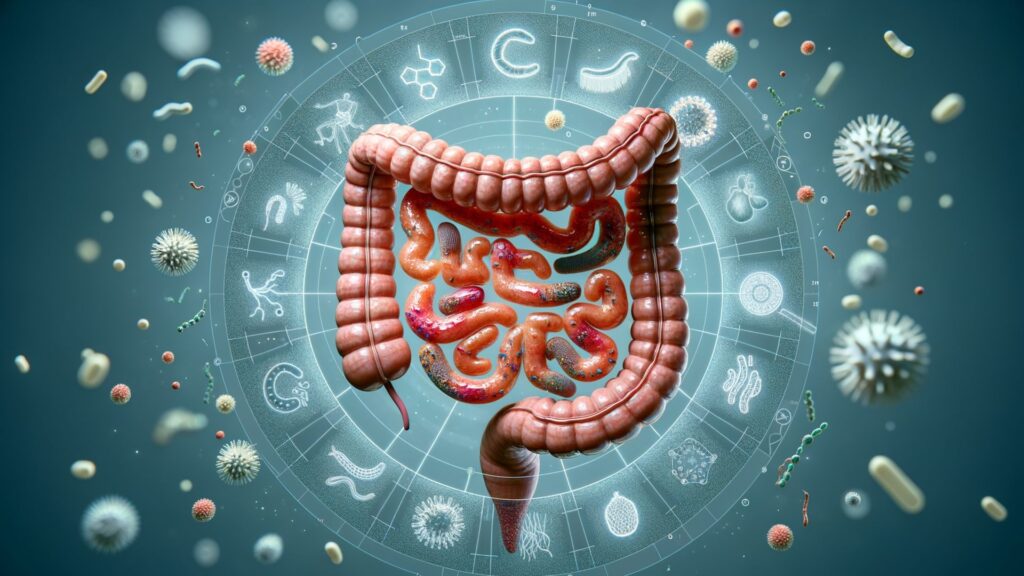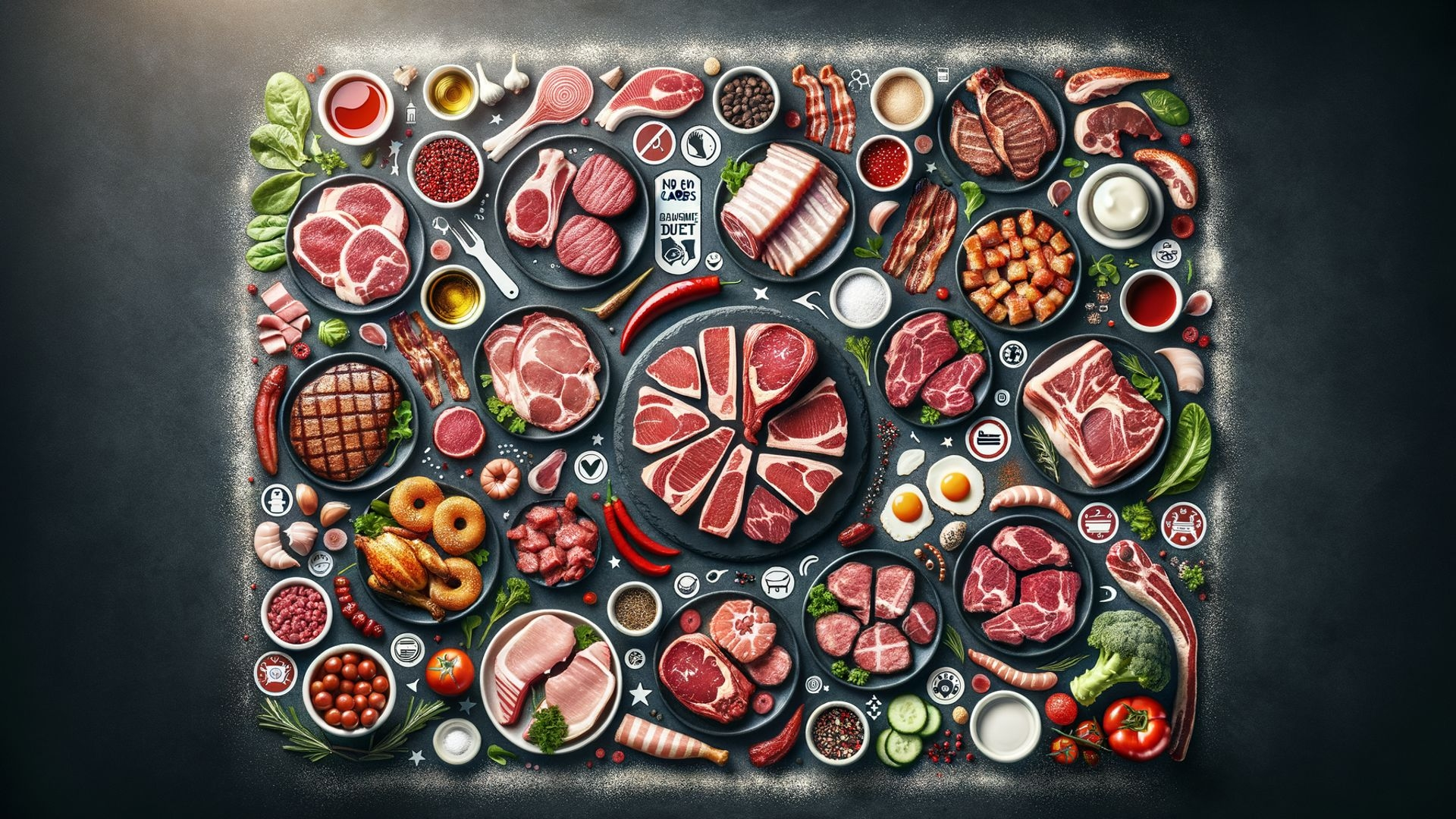Carnivore Diet for SIBO: Optimal Gut Health Solution
SIBO and Carnivore Diet: Understanding the Connection
What is SIBO and how does it affect gut health?
Small Intestinal Bacterial Overgrowth (SIBO) is a condition characterized by an overgrowth of bacteria in the small intestine. This imbalance can lead to various digestive issues such as bloating, diarrhea, and malabsorption of nutrients, impacting overall gut health. Common symptoms of SIBO include excessive gas and bloating, abdominal pain or cramping, diarrhea or constipation (or alternating between the two), belching, and feeling full or nauseous after eating.
These symptoms can be similar to other digestive disorders, so it is important to see a healthcare provider for proper diagnosis and treatment. There are various causes of SIBO, including poor dietary habits, a weakened immune system, certain medications, and various underlying health conditions such as Irritable Bowel Syndrome (IBS), celiac disease, or diabetes. SIBO can also develop after surgery or as a result of structural abnormalities in the digestive tract.
Treatment for SIBO typically involves a combination of antibiotics to reduce the overgrowth of bacteria, along with dietary changes to prevent future episodes. A low-FODMAP diet, which restricts certain types of carbohydrates that can feed bacteria in the small intestine, may be recommended. Probiotics may also be helpful to restore a healthy balance of gut bacteria.

How can a carnivore diet help in managing SIBO symptoms?
The carnivore diet, known for its focus on animal-based foods and elimination of carbohydrates and fiber, may be beneficial for individuals with SIBO. By reducing the intake of fermentable carbohydrates that feed bacterial overgrowth, the carnivore diet aims to starve the bacteria in the small intestine, potentially alleviating symptoms associated with SIBO.
Are there any risks associated with following a carnivore diet for SIBO?
While the carnivore diet may help manage SIBO symptoms for some individuals, there are risks of potential nutritional deficiencies due to the elimination of plant-based foods. It is important for individuals following the carnivore diet for SIBO to monitor their nutrient intake and possibly consult with a healthcare provider or nutritionist to ensure adequate nutrition.
Benefits of Carnivore Diet for SIBO
How does a carnivore diet impact the overgrowth of bacteria in the small intestine?
The carnivore diet, by excluding carbohydrates that feed bacterial overgrowth, may help reduce the population of bacteria in the small intestine, potentially addressing the root cause of SIBO and improving gut health. Additionally, a carnivore diet can help improve digestion and absorption of nutrients by eliminating any potential irritants or allergens that may be present in other types of food.
By focusing on nutrient-dense meats and animal products, individuals following a carnivore diet can ensure they are getting the essential vitamins, minerals, and amino acids necessary for optimal health. Furthermore, the high protein content of a carnivore diet can help support muscle growth and repair, aid in weight management, and improve overall energy levels and physical performance. Protein is also important for maintaining healthy hair, skin, and nails, as well as supporting immune function and hormone production.
Overall, while the carnivore diet may not be suitable for everyone and should be approached with caution, it can be a potential option for individuals looking to improve their gut health, optimize nutrient intake, and enhance physical performance. As always, it is important to consult with a healthcare provider or nutritionist before making any drastic changes to your diet.
Can a carnivore diet help in normalizing gut function for individuals with SIBO?
For individuals with SIBO, a carnivore diet may aid in normalizing gut function by reducing the burden on the digestive system, potentially leading to reduced bloating, diarrhea, and malabsorption issues commonly associated with the condition. The carnivore diet consists of animal-based foods such as meat, fish, and eggs, which are low in fermentable carbohydrates that can feed SIBO-causing bacteria in the gut.
By eliminating these carbohydrates from the diet, individuals with SIBO may experience a reduction in symptoms and an improvement in gut health. Additionally, the high protein and fat content of the carnivore diet can help improve satiety, stabilize blood sugar levels, and provide essential nutrients for overall health. Protein is essential for supporting muscle growth and repair, while healthy fats are important for brain function, hormone production, and cell membrane health.
It’s important to work with a healthcare provider or nutritionist when starting a carnivore diet, especially if you have SIBO or other digestive issues. They can help create a well-rounded meal plan that meets your nutritional needs while also addressing any underlying health concerns.
Overall, the carnivore diet may be beneficial for individuals with SIBO by reducing the intake of fermentable carbohydrates and providing essential nutrients for gut health. However, it’s important to approach any dietary changes with caution and guidance from a qualified professional.
What role do carbohydrates play in exacerbating SIBO symptoms?
Carbohydrates, particularly fermentable ones, can worsen SIBO symptoms by promoting bacterial overgrowth in the small intestine. By eliminating these carbohydrates, the carnivore diet aims to alleviate symptoms and create an environment less conducive to bacterial overgrowth.
Additionally, the carnivore diet emphasizes the consumption of nutrient-dense animal foods, such as meat, fish, and eggs, which can provide essential nutrients and support gut health. These foods are easily digestible and less likely to cause irritation or inflammation in the gut, making them a suitable choice for individuals with SIBO.
Some people with SIBO may find relief from symptoms by following a carnivore diet, as it eliminates many potential triggers for bacterial overgrowth and inflammation. However, it is important to consult with a healthcare professional before making significant changes to your diet, as individual dietary needs can vary.
Additionally, some people may experience nutrient deficiencies or other health issues when following a strict carnivore diet long-term. It’s essential to ensure you are still getting all the necessary nutrients for optimal health and well-being.
Implementing a Carnivore Diet for SIBO
What key components should be included in a carnivore diet for SIBO?
When implementing a carnivore diet for SIBO, focus on including nutrient-dense animal foods such as meat, fish, and organ meats. These foods provide essential nutrients like protein, fat, and certain micronutrients needed for overall health.
Additionally, it is important to avoid carbohydrates and fiber found in plant-based foods, as these can exacerbate SIBO symptoms. Instead, opt for fatty cuts of meat, fatty fish like salmon, and organ meats such as liver for a well-rounded carnivore diet.
It is also crucial to pay attention to portion sizes and meal timing to avoid overeating and allow for proper digestion. Eating smaller, more frequent meals throughout the day can help prevent bloating and discomfort.
Since a carnivore diet may lack certain vitamins and minerals found in plant-based foods, it is recommended to consult with a healthcare professional or nutritionist to ensure you are meeting your nutritional needs through supplementation if necessary.
Overall, implementing a carnivore diet for SIBO requires careful planning and consideration to ensure you are providing your body with the proper nutrients it needs while also managing your symptoms effectively.
Is it necessary to undergo a breath test before starting a carnivore diet for SIBO?
While a breath test can help diagnose SIBO, it is not always necessary before starting a carnivore diet. However, consulting with a healthcare provider or a functional medicine practitioner can provide guidance on the most suitable dietary approach based on individual needs.

How can a carnivore diet potentially alleviate symptoms of irritable bowel syndrome (IBS) in SIBO patients?
By eliminating potential trigger foods and focusing on easily digestible animal products, the carnivore diet may help reduce symptoms of Irritable Bowel Syndrome (IBS) often experienced by individuals with SIBO, promoting better gut health and overall well-being.
Some potential trigger foods for individuals with IBS include grains, legumes, dairy, and certain fruits and vegetables. By eliminating these foods and focusing on animal products such as meat, fish, and eggs, the carnivore diet may reduce inflammation and irritation in the gut, leading to improvement in symptoms such as bloating, gas, diarrhea, and abdominal pain.
Additionally, since animal products are easily digestible and are low in fermentable carbohydrates, they may be less likely to exacerbate symptoms of small intestinal bacterial overgrowth (SIBO), a common condition in individuals with IBS. By reducing the amount of fermentable carbohydrates in the diet, the carnivore diet may help reduce bacterial overgrowth in the small intestine and improve gut health.
Managing SIBO with a Carnivore Diet
What are some practical tips for incorporating a carnivore diet into a SIBO management plan?
When managing SIBO with a carnivore diet, start by gradually transitioning to animal-based foods and monitoring symptoms. Ensure adequate hydration, incorporate variety in animal sources, and consider supplementation if needed, under the guidance of a healthcare professional.
How does a carnivore diet address the root cause of SIBO rather than just symptom management?
The carnivore diet targets the underlying cause of SIBO by depriving bacteria of fermentable substrates they thrive on. This approach aims to rebalance the gut microbiome, potentially leading to long-term improvements in gut health beyond symptom relief.
By consuming only animal-based foods such as meat, fish, and eggs, the carnivore diet eliminates carbohydrates, fiber, and other plant-based compounds that can feed bacteria in the small intestine. This helps stave off the overgrowth of bacteria that can cause SIBO.
Additionally, the high protein and fat content of the carnivore diet can help support the growth of beneficial gut microbes and improve the overall balance of the microbiome.
The lack of inflammatory plant compounds may also reduce gut irritation and support the healing of the intestinal lining. While the carnivore diet may not be suitable for everyone and should be approached with caution, some individuals with SIBO have reported significant improvements in symptoms and overall gut health after following this diet. It is important to work with a healthcare provider or nutritionist to ensure that nutrient needs are being met and to monitor progress over time.
In conclusion, the carnivore diet may be a potential dietary approach for individuals seeking relief from SIBO by addressing the root cause of bacterial overgrowth and promoting a healthy gut microbiome.

Are there any specific guidelines to follow when transitioning to a carnivore diet for SIBO?
When transitioning to a carnivore diet for SIBO, consider starting with a gradual elimination of carbohydrates and fiber-rich foods while increasing animal protein and fat intake. Pay attention to your body’s response and make adjustments as needed to optimize the diet for your individual needs.
Carnivore Diet vs. Traditional Approaches for SIBO
What sets the carnivore diet apart from other dietary approaches in tackling SIBO?
The carnivore diet distinguishes itself by its strict elimination of carbohydrates and focus on animal-based nutrition, aiming to starve bacteria in the small intestine. This approach contrasts with traditional high-fiber diets that may inadvertently worsen SIBO symptoms by feeding bacterial overgrowth.
Can the carnivore diet be a sustainable long-term solution for managing SIBO symptoms?
While the carnivore diet may offer relief for some individuals with SIBO, its long-term sustainability and nutritional adequacy may vary for different individuals. It is important to assess individual tolerance and consult healthcare providers to determine the most suitable diet for long-term SIBO management.
How does the carnivore diet impact gut health in comparison to a traditional high-fiber diet for SIBO?
In contrast to traditional high-fiber diets, the carnivore diet focuses on nutrient-dense animal foods and excludes fermentable carbohydrates that can exacerbate SIBO symptoms. By supporting gut health through a different approach, the carnivore diet offers an alternative strategy for managing SIBO beyond conventional dietary recommendations.
Carnivore Diet for Sibo Frequently Asked Question
What is Sibo and how does it relate to the carnivore diet?
Sibo, or small intestinal bacterial overgrowth, is a condition where there is an excessive amount of bacteria in the small intestine. The carnivore diet, being an elimination diet, can be used to treat Sibo by eliminating certain foods that feed the bacteria causing the overgrowth.
Can using the carnivore diet help treat Sibo?
Yes, the carnivore diet can be an effective treatment for Sibo as it eliminates carbohydrates that could feed the bacteria in the gut, helping to reduce symptoms and improve digestive health.
What are the benefits of the carnivore diet for Sibo?
The carnivore diet can help treat Sibo by reducing the level of bacteria in the small bowel, which can alleviate symptoms such as bloating, abdominal pain, and cramping.
Are there any risks associated with using the carnivore diet to treat Sibo?
While the carnivore diet can be beneficial for treating Sibo, it’s essential to ensure you are not at risk of malnutrition by excluding important nutrients from your diet. Consult with a healthcare provider before making significant changes.
How does the carnivore diet compare to antibiotic treatment for Sibo?
The carnivore diet offers a natural alternative to antibiotic treatment for Sibo. While antibiotics can be effective, they may also disrupt the balance of gut bacteria, whereas the carnivore diet focuses on eliminating specific foods to promote a healthier balance.
What role does the quality of life play in considering the carnivore diet for Sibo?
The carnivore diet can improve the quality of life for individuals with Sibo by reducing symptoms and promoting better digestive health. It can offer an alternative treatment that may be well-tolerated by some individuals.
How does the carnivore diet affect the gut microbiome in relation to Sibo?
The carnivore diet may have a therapeutic effect on the gut microbiome in individuals with Sibo by reducing the population of certain bacteria that contribute to the condition. This can help restore a healthier balance of gut bacteria.
What is a carnivore diet and how might it impact SIBO (Small Intestinal Bacterial Overgrowth)?
A carnivore diet is an eating plan that includes only animal products like meat, fish, eggs, and dairy. It might impact SIBO by reducing the intake of fermentable carbohydrates, which can feed harmful bacteria in the small intestine, potentially alleviating symptoms and bacterial overgrowth.
Is a carnivore diet safe for individuals with SIBO?
While some individuals with SIBO may experience symptom relief on a carnivore diet due to reduced fermentation of carbohydrates, long-term safety is not well-studied. Its essential to consult with healthcare professionals before starting such a restrictive diet to ensure nutritional adequacy and monitor potential risks.
Can a carnivore diet provide all necessary nutrients without exacerbating SIBO symptoms?
A carnivore diet can provide many essential nutrients but may lack certain vitamins and minerals typically found in plant foods, such as fiber, vitamin C, and some B vitamins. Careful planning or supplementation may be required to prevent deficiencies without worsening SIBO symptoms.
How long should someone with SIBO try the carnivore diet to determine its effectiveness?
The duration varies per individual; however, a typical trial period might be 4-6 weeks. Monitoring symptoms closely during this time can help determine if the dietary change is beneficial. Consultation with a healthcare provider throughout this process is crucial for guidance and adjustments based on response.
Are there any specific types of meats or animal products that are recommended or should be avoided on a carnivore diet for people with SIBO?
For those with SIBO on a carnivore diet, its generally recommended to choose meats low in additives and processed sugars. Lean cuts may be easier to digest than fatty ones; however tolerance varies by individual. Dairy products can be problematic for some due to lactose content; therefore they may need to be limited or avoided depending on individual sensitivities.






